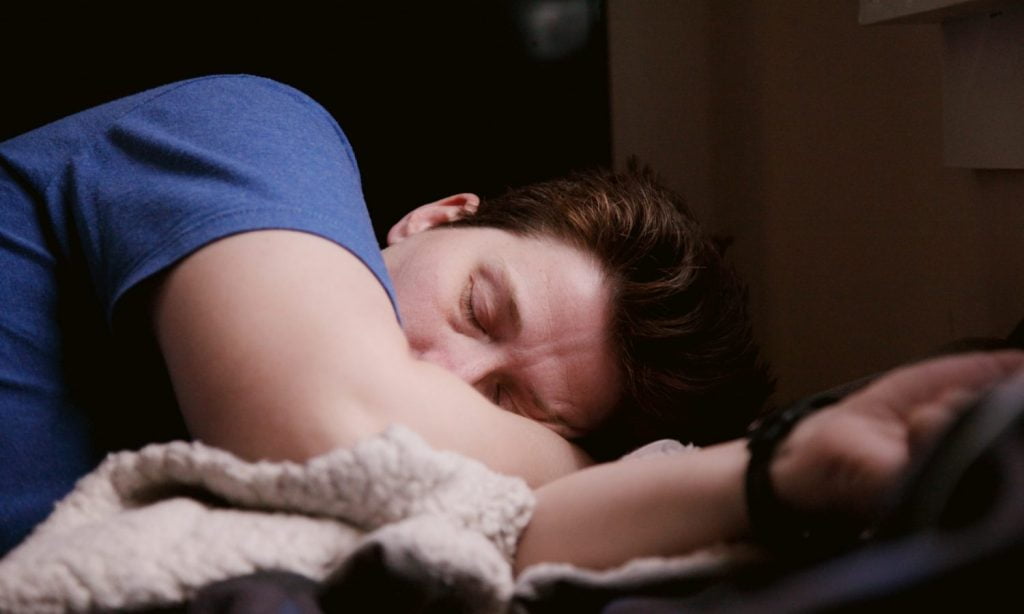
Why the latest study that says cannabis is bad for sleep is deeply flawed
This article originally appeared on Cannabis.net and was republished with permission.
Many people use cannabis to help them fall asleep. It is one of the most common uses of cannabis in the medical context. However, a recent study aims to challenge the idea that cannabis is good for sleeping and believes it found reasons to question our assumptions.
In this article, I’m going to do another Reginald Review to see if this study has any merit or not. I will use pure critical thinking and logic to analyze the data and see if or not we need to worry about cannabis and sleep.
Photo by Weiquan Lin / Getty Images
My gut instincts tell me that we are likely to hear phrases like “may cause” or “need further study” indicating that research is reaching for straws. Still, it would be good to know the implications of our choices and adapt accordingly if the study has any benefit.
What the study claims
Reported on the study, CNN said, “The use of weed can actually harm sleep, according to a new study. The study, published Monday in a BMJ journal, found that adults who consumed weed for 20 days or more in the past month were 64% more likely to be less than six hours a night and 76% more likely to use weed for more than nine hours a night slept. The US Centers for Disease Control and Prevention defines optimal sleep for adults as seven to eight hours per night. “
Basically, the study found that people who smoked more than 20 times a month (I know an arbitrary number) were more likely to sleep more than eight hours at a rate of 47%.
Lead researcher Calvin Diep said, “Large population-based studies show that both short sleep and long sleep are linked to an increased risk of heart attacks and strokes, as well as the long-term progression of things like atherosclerosis, diabetes, coronary artery disease and one of the most important heart disease Circulatory diseases. “
While this may be true unless they tested cannabis users for these conditions too, the information would by no means be causal. It could just be a fluke, or there could be numerous other things that could lead to the same results.
In fact, that’s what lead researcher Calvin Diep said.
“The problem with our study is that we can’t really say it’s causal, which means we can’t know for sure whether it was just people who had sleep disorders and therefore used the cannabis or the cannabis it caused. “Diep told CNN.
RELATED: Recent cannabis use associated with extreme nighttime sleep patterns and duration
CNN also interviewed another clinician-scientist, Dr. Karim Ladha, on these results, about which he had the following to say:
“Studies tell us what is happening at the population level, but at the individual level this discussion is much more personal,” he said. “The studies only give us the possibility that (marijuana) might interfere with your sleep, but it can help and we just don’t know until you try.”
Therefore, additional studies need to be done, he added.
 Photo by Shane via Unsplash
Photo by Shane via Unsplash
“Patients spend money, time, and resources getting cannabis right now to help them fall asleep,” Ladha said. “I think we as a medical community must do everything we can to ensure that our patients can make the best possible choices about their health.”
RELATED: Does Prenatal Cannabis Use Make Babies Angry? Debunking the latest medical study
On this point, I agree with Ladha, it is the responsibility of the medical community to help people make the best decisions about their health. These studies tend to analyze the data in a “generalized” way and cast a wide net – but this does not mean that some people individually actually benefit from cannabis use.
Why do they publish unfinished science?
Science is a process and it is important to document the results. However, it’s also important to note that CNN and many other media outlets have been against cannabis in the past. Most of the time, cannabis is reported either ironically, sarcastically, or in a negative light. It wasn’t until recently that news outlets were forced to spin another narrative.
RELATED: Is “Uncontrollable Vomiting” Really a Serious Side Effect of Marijuana?
If we look at funding large networks, you’ll find that a lot of it comes from drug companies – who happen to be selling drugs to help you sleep. The difference is that you can grow one of the drugs at home while the other has to be bought exclusively from a licensed doctor who also makes some nice profits on his drugs prescription.
Does this mean we should ignore the study? I can’t say that the study was mainly funded by the pharmaceutical industry because I didn’t look at the funding. However, I can definitely say that CNN is getting money from the pharmaceutical industry and therefore potentially has serious bias when it comes to reporting on the negative effects of cannabis.
 Photo by Andrea Piacquadio from Pexels
Photo by Andrea Piacquadio from Pexels
Prohibition could only last so long through media networks. They help shape the narrative for the government.
I wouldn’t have a problem if they released these results with an open mind, but the CNN headline does not suggest that there is no causal relationship between the results. It makes you believe that smoking cannabis affects your sleep, especially if you smoke more than 20 times in a single month.
Really? Twenty times? Is that dabs? Joints? Vaping? Edible? What about the potency? How close to bedtime did users consume cannabis? Or are we simply using the ambiguity of the statement as a means of claiming that due diligence was required in this study?
While this study is sure to be cited by some anti-cannabis organizations in the future, it is so that this study was done with the aim of building a narrative. Which is a shame. You should be doing legitimate research on these things.
Compared to a control group, conducting clinical studies with cannabis from pharmacies would have no ethical consequences. Especially in places like Canada.
This article originally appeared on Cannabis.net and was republished with permission.

Post a comment: